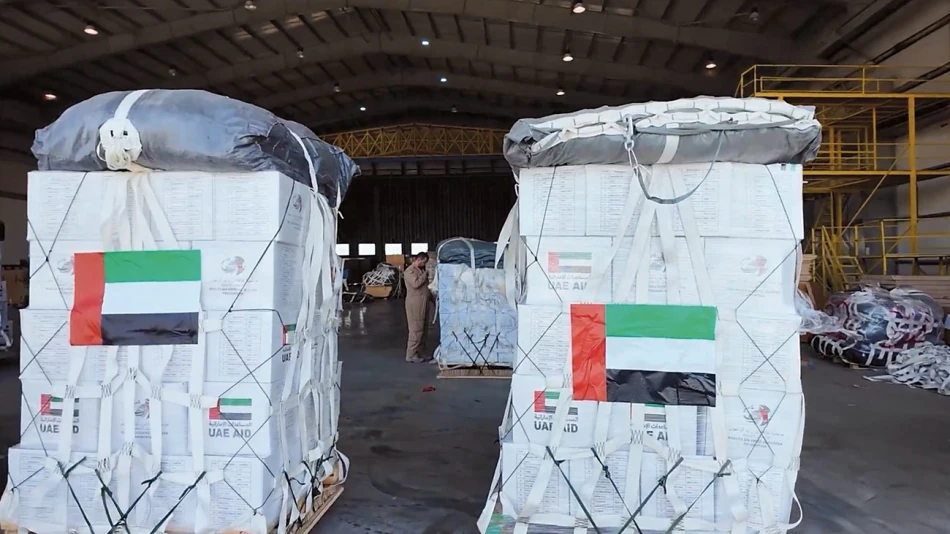
UAE Executes 64th Aerial Humanitarian Airlift to Gaza under 'Birds of Goodness' Operation
UAE Reaches Major Milestone in Gaza Relief Operations with 64th Airdrop
The United Arab Emirates has delivered its 64th humanitarian airdrop to Gaza as part of its "Birds of Goodness" operation, marking a significant escalation in Middle Eastern nations' direct humanitarian intervention. With over 3,851 tons of aid delivered by air alone and 45 additional trucks crossing into Gaza today, the UAE's sustained relief effort highlights how regional powers are filling critical gaps in international humanitarian response.
Coordinated International Effort Expands Beyond Regional Partners
The latest airdrop, conducted under the broader "Noble Knight 3" operation, demonstrates unprecedented coordination between Middle Eastern and European nations. Jordan continues as the UAE's primary regional partner, while France, Germany, and Belgium have joined the humanitarian coalition—a notable expansion that signals growing European engagement in direct Gaza relief efforts.
This multi-national approach contrasts sharply with earlier phases of the conflict, when humanitarian aid faced significant diplomatic and logistical bottlenecks. The inclusion of European partners suggests a shift toward more pragmatic, action-oriented humanitarian diplomacy that bypasses traditional political constraints.
Strategic Humanitarian Logistics Address Access Challenges
Air and Land Corridors Maximize Coverage
The UAE's dual-track approach—combining airdrops with ground convoys—reflects sophisticated crisis logistics adapted to Gaza's unique geographical and security constraints. Airdrops target areas inaccessible by land routes, while the 45 trucks entering today focus on zones with functioning distribution networks.
This strategy mirrors successful humanitarian operations in conflict zones like Syria and Yemen, where multi-modal delivery systems proved essential for reaching isolated populations. The scale of 3,851 tons delivered by air alone represents one of the largest sustained airdrop campaigns in recent Middle Eastern humanitarian crises.
Regional Leadership in Crisis Response
The UAE's prominent role positions the nation as a key humanitarian broker in the region, building on its established reputation from previous crisis responses in Lebanon, Syria, and Yemen. This sustained engagement strengthens the UAE's soft power credentials while demonstrating Gulf states' capacity for independent humanitarian action.
The operation also showcases how smaller, resource-rich nations can lead large-scale relief efforts when traditional international mechanisms face political deadlock. The UAE's approach offers a model for other Gulf states considering enhanced humanitarian roles in regional conflicts.
Implications for Future Humanitarian Architecture
The success of the UAE-led coalition may reshape expectations for humanitarian response in Middle Eastern crises. By demonstrating that regional powers can mobilize significant resources and international partnerships quickly, the operation challenges assumptions about Western-led humanitarian architecture.
For regional stability, the UAE's sustained commitment signals that Gulf states view humanitarian leadership as integral to their strategic influence. This trend could encourage similar initiatives from Saudi Arabia and Qatar, potentially creating more competitive but also more comprehensive regional humanitarian capacity.
The integration of European partners also suggests evolving diplomatic pathways that prioritize humanitarian outcomes over traditional political alignments, offering a framework that could prove valuable in future regional crises.
Most Viewed News

 Sara Khaled
Sara Khaled






